When it comes to smooth, glowing skin, body scrubs are often praised as a must-have in self-care routines. But behind the luxury packaging and tropical scents, there’s a side most ads won’t tell you. While they can slough off dead skin and leave you feeling refreshed, body scrubs aren’t harmless. In fact, for many people, they cause more problems than they solve-especially in hot, dry climates like Dubai, where skin is already under stress from heat, AC, and hard water.
Understanding the Basics of Body Scrubs
Origins and History
Body scrubs aren’t new. Ancient Egyptians used sand and salt to exfoliate before bathing in the Nile. Romans mixed olive oil with pumice for skin renewal. Today’s versions swap sand for ground walnut shells or sugar, and oils for synthetic fragrances. But the core idea remains: physically remove dead skin cells to reveal smoother skin underneath. The problem? Modern scrubs often go too far-using harsh abrasives, high concentrations of acids, or irritating essential oils that weren’t part of the original formula.
Core Principles or Components
A typical body scrub has three parts: an abrasive (salt, sugar, ground nut shells), a carrier (oil, butter, gel), and additives (fragrance, color, preservatives). The abrasive does the scrubbing. The carrier helps it glide and moisturizes. The additives? They’re there for marketing, not skin health. Many of these extras-like synthetic perfumes or glitter-are what cause irritation, especially on sensitive or acne-prone skin.
How It Differs from Related Practices
Body scrubs are often confused with chemical exfoliants like AHAs or BHAs. The big difference? Scrubs work mechanically-they rub. Chemical exfoliants dissolve dead skin cells without friction. That’s why a salicylic acid toner might be safer for someone with rosacea than a coconut-oil-based scrub with apricot kernels. Here’s how they compare:
| Feature | Body Scrub | Chemical Exfoliant |
|---|---|---|
| How it works | Physical abrasion | Dissolves dead cells chemically |
| Best for | Thick, calloused skin | Fine lines, acne, sensitive skin |
| Risk of micro-tears | High | Low |
| Frequency recommended | 1-2 times/week | 2-4 times/week |
| Post-use sensitivity | Common | Mild to moderate |
Who Can Benefit from Body Scrubs?
People with thick, rough skin on elbows, knees, or feet may see real improvement. Athletes, swimmers, or those who sweat heavily might find it helps prevent ingrown hairs. But if your skin is dry, flaky, sunburned, or prone to eczema or psoriasis, a scrub can make things worse. In Dubai’s climate, where humidity is low and skin loses moisture fast, over-scrubbing can strip your skin’s natural barrier-leading to more dryness, not less.
What Are the Disadvantages of Body Scrubs?
Micro-tears and Skin Barrier Damage
That satisfying gritty feeling? It’s literally scraping your skin. Even gentle scrubs can create tiny tears in the epidermis, especially if you rub too hard or use them daily. These micro-tears weaken your skin’s protective barrier, making it easier for irritants, bacteria, and allergens to get in. Over time, this leads to chronic redness, stinging, and increased sensitivity. Dermatologists in the UAE have reported a rise in patients with barrier-damaged skin from over-exfoliation-often from daily scrub use paired with harsh soaps and air-conditioned environments.
Increased Risk of Irritation and Allergic Reactions
Many body scrubs are loaded with synthetic fragrances, dyes, and preservatives like parabens or formaldehyde releasers. These aren’t just for scent-they’re cheap fillers. In a study of over 200 skincare products sold in Gulf countries, 68% contained at least one known skin irritant. If you’ve ever felt a burning sensation after using a scrub, it’s not your skin “getting used to it.” It’s an allergic or irritant reaction. Coconut oil, often marketed as natural, can clog pores in some people. Tea tree oil, while antibacterial, is a common contact allergen.
Worsening Acne and Ingrown Hairs
Scrubbing acne-prone skin can spread bacteria and inflame existing breakouts. The abrasive particles can also push dead skin and oil deeper into pores, triggering more pimples. And while scrubs are often recommended to prevent ingrown hairs, the opposite can happen: rough particles can irritate hair follicles, causing inflammation and trapping hairs under the skin. In areas like the bikini line or legs-where hair is coarser-this is especially common.
Dehydration and Over-Exfoliation
Your skin has a lipid barrier that holds in moisture. Scrubs strip away these natural oils. In Dubai’s dry heat, where skin loses water faster than in humid climates, this can lead to severe dehydration. You might think your skin feels “tight” after a scrub because it’s clean. It’s not. It’s damaged. And if you follow up with a drying shower gel or hot water, you’re compounding the problem. The result? Flaky, itchy, tight skin that looks worse than before.
Environmental and Ethical Concerns
Microplastics from synthetic scrubs (like polyethylene beads) are banned in the EU and US, but many still slip through in products labeled “natural.” Even natural scrubs made from crushed shells or seeds can be unsustainable. Harvesting walnut shells or apricot pits at scale harms ecosystems. And the plastic packaging? Most body scrub containers aren’t recyclable. If you care about the planet, your scrub might be contributing to ocean pollution-even if your skin feels soft.
What to Expect When Using Body Scrubs
Immediate Aftermath
Right after a scrub, your skin may look brighter and feel smoother. That’s temporary. The glow comes from surface-level sloughing, not true renewal. If you’re prone to redness, you might notice flushed patches. Some people feel a tingling sensation-this isn’t “active ingredients working.” It’s irritation. If it lasts more than 10 minutes, stop using it.
Long-Term Effects
Use scrubs too often, and your skin adapts by thickening its outer layer as a defense. This leads to dullness, rough texture, and more breakouts. You might start needing stronger scrubs to feel the same effect-a classic sign of dependency. It’s like sanding wood too much: eventually, you wear it down unevenly.
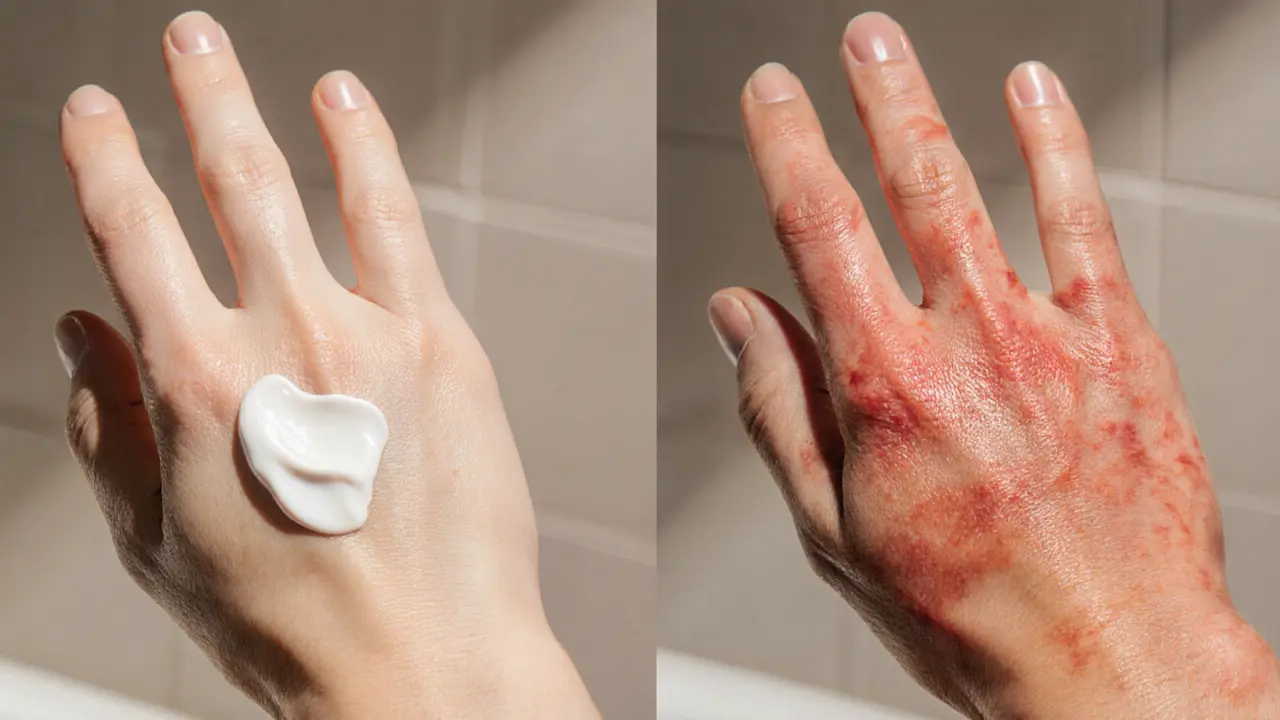
Safety and Ethical Considerations
Who Should Avoid Body Scrubs?
If you have eczema, rosacea, psoriasis, active acne, sunburn, or recently waxed skin, skip scrubs. People with diabetes or poor circulation should also avoid them-reduced sensation means you might not feel damage until it’s serious. Pregnant women should avoid scrubs with strong essential oils like rosemary or clary sage, which can stimulate contractions.
Safety Practices
Here’s how to minimize harm if you still use scrubs:
| Practice | Purpose | Example |
|---|---|---|
| Use lukewarm water | Prevents stripping natural oils | Never use hot showers before or after |
| Scrub gently, once a week | Reduces micro-tears | Use light circular motions, no scrubbing tools |
| Choose fragrance-free, non-abrasive formulas | Lowers allergy risk | Look for sugar or rice bran instead of walnut shells |
| Moisturize immediately after | Restores barrier | Apply oil or cream within 3 minutes of drying |
Alternatives That Work Better
Chemical Exfoliants
For most skin types, especially in dry climates, a gentle chemical exfoliant like lactic acid (from milk) or gluconolactone is safer and more effective. They dissolve dead skin without friction. Look for products labeled “non-abrasive” or “enzyme-based.”
Soft Washcloths or Konjac Sponges
These offer mild physical exfoliation without harsh particles. Soak a washcloth in warm water and gently glide it over skin after cleansing. No scrub needed.
Hydration First
Often, rough skin isn’t about dead cells-it’s about dehydration. A good ceramide moisturizer or hyaluronic acid serum can smooth skin faster and safer than any scrub.
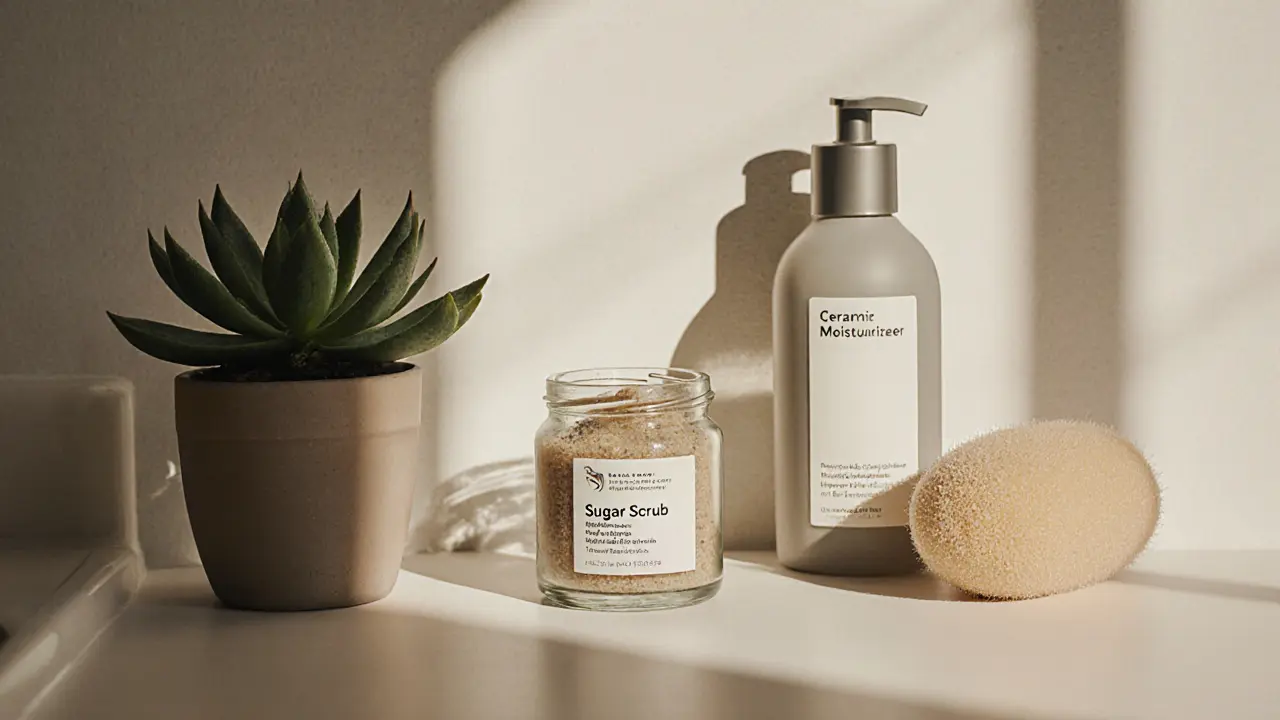
FAQ: Common Questions About Body Scrubs
Do body scrubs damage your skin?
Yes, if used too often or too aggressively. Body scrubs create tiny tears in the skin’s surface, which can weaken its protective barrier. This leads to dryness, redness, sensitivity, and even breakouts. In hot, dry climates like Dubai, this damage happens faster. Dermatologists recommend limiting scrubs to once a week and choosing gentle formulas with fine particles.
Are body scrubs safe for sensitive skin?
Generally, no. Sensitive skin reacts easily to physical abrasion and added fragrances. Many scrubs contain walnut shells, apricot pits, or synthetic perfumes that trigger irritation. If you have rosacea, eczema, or acne-prone skin, opt for chemical exfoliants like lactic acid or enzyme masks instead. Always patch-test new products on your inner arm before full-body use.
Can body scrubs cause acne?
Absolutely. Scrubbing acne-prone skin can spread bacteria and push debris deeper into pores. The abrasive particles can also inflame hair follicles, leading to folliculitis or cystic bumps. If you’re breaking out after using a scrub, stop immediately. Switch to a salicylic acid cleanser or toner-these dissolve oil without scratching your skin.
How often should you use a body scrub?
Once a week is enough for most people. If your skin is dry, sensitive, or in a harsh climate like Dubai, twice a month is safer. Daily scrubbing strips natural oils, damages your skin barrier, and triggers rebound dryness. Always follow up with a rich moisturizer. If your skin feels tight or stings afterward, you’re overdoing it.
What’s a better alternative to body scrubs?
For most people, a gentle chemical exfoliant like lactic acid or gluconolactone is safer and more effective. They dissolve dead skin without friction. You can also use a soft washcloth or konjac sponge after cleansing. Hydration is key: a ceramide cream or hyaluronic acid serum often smooths skin better than any scrub-and without the risk.
Conclusion: Why You Should Think Twice Before Scrubbing
A Path to Healthier Skin
Smooth skin doesn’t need to come from abrasion. True radiance comes from hydration, barrier repair, and gentle care. Body scrubs might give you a quick glow, but they’re a short-term fix with long-term risks. In Dubai’s climate, where skin is already stressed, it’s smarter to treat your skin like a delicate ecosystem-not a surface to be scrubbed clean.
Try It Mindfully
If you still want to use a scrub, do it sparingly. Choose one with fine, natural particles. Skip the fragrance. Moisturize right after. And if your skin ever stings, burns, or flakes more-stop. Your skin is telling you something.
Share Your Journey
Tried a body scrub and had a bad reaction? Or found one that actually worked? Share your experience in the comments. Your story might help someone else avoid a skincare mistake.
Some links may be affiliate links, but all recommendations are based on research and quality.
Word count: 1,682
Suggested Images
- A close-up of dry, flaky skin on an elbow with a gentle washcloth nearby
- Side-by-side comparison: one hand smooth (after moisturizer), one hand red and irritated (after scrub)
- A bathroom counter with a sugar scrub, a ceramide cream, and a konjac sponge-no plastic bottles
- A person applying lotion after a shower, with steam rising-calm, quiet lighting
- A labeled diagram of skin layers showing micro-tears from abrasion
Suggested Tables
- Comparison of Body Scrub vs. Chemical Exfoliants (already included)
- Safe Scrubbing Practices (already included)
- Ingredients to Avoid in Body Scrubs (e.g., Polyethylene, Walnut Shells, Synthetic Fragrance, Parabens)

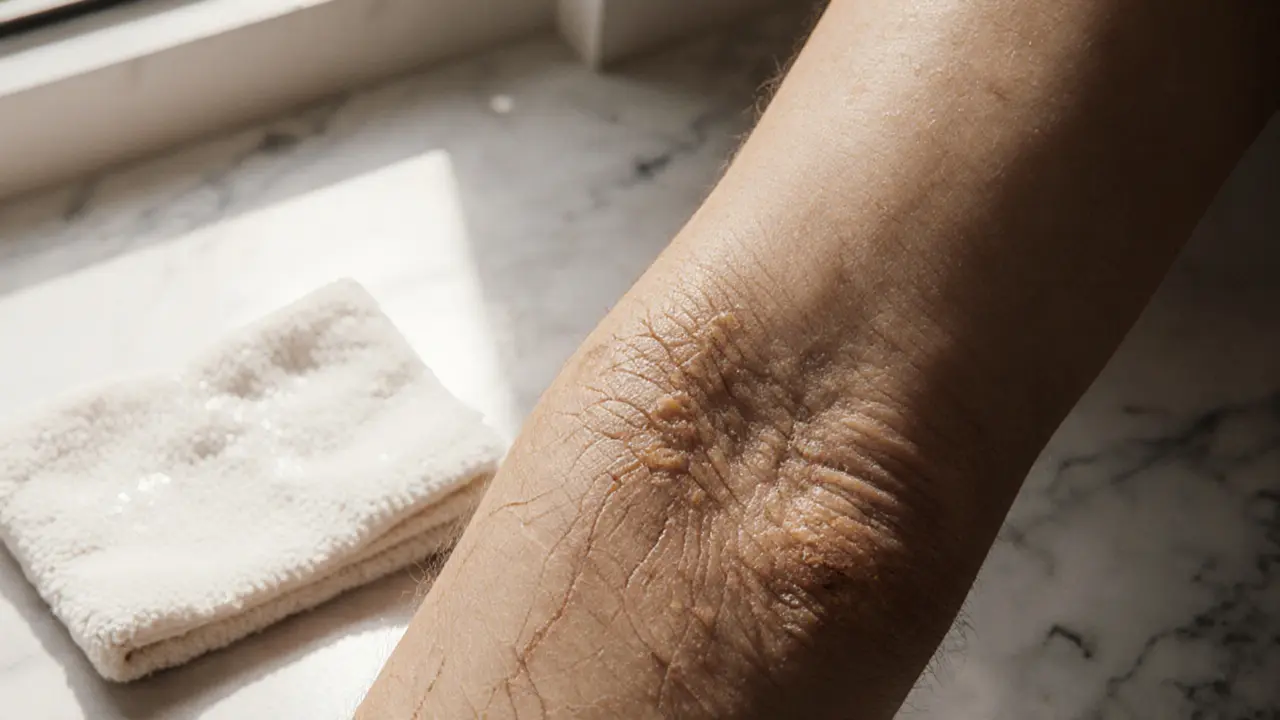
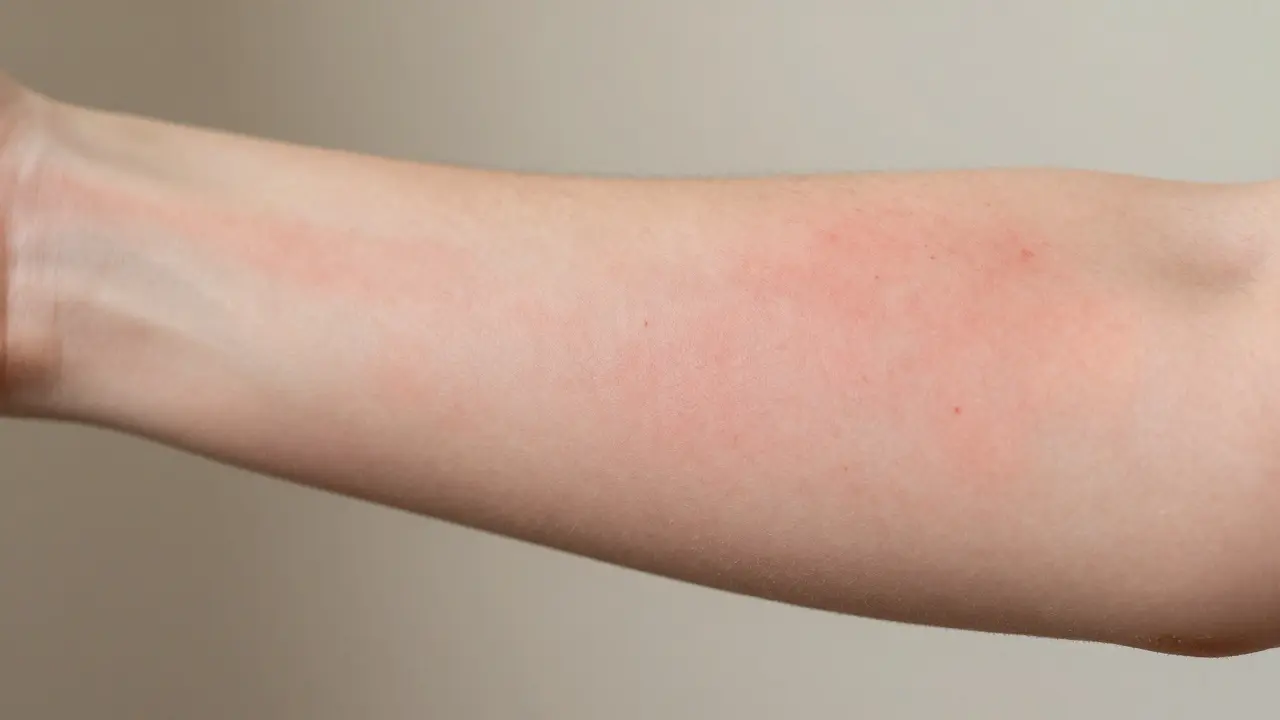
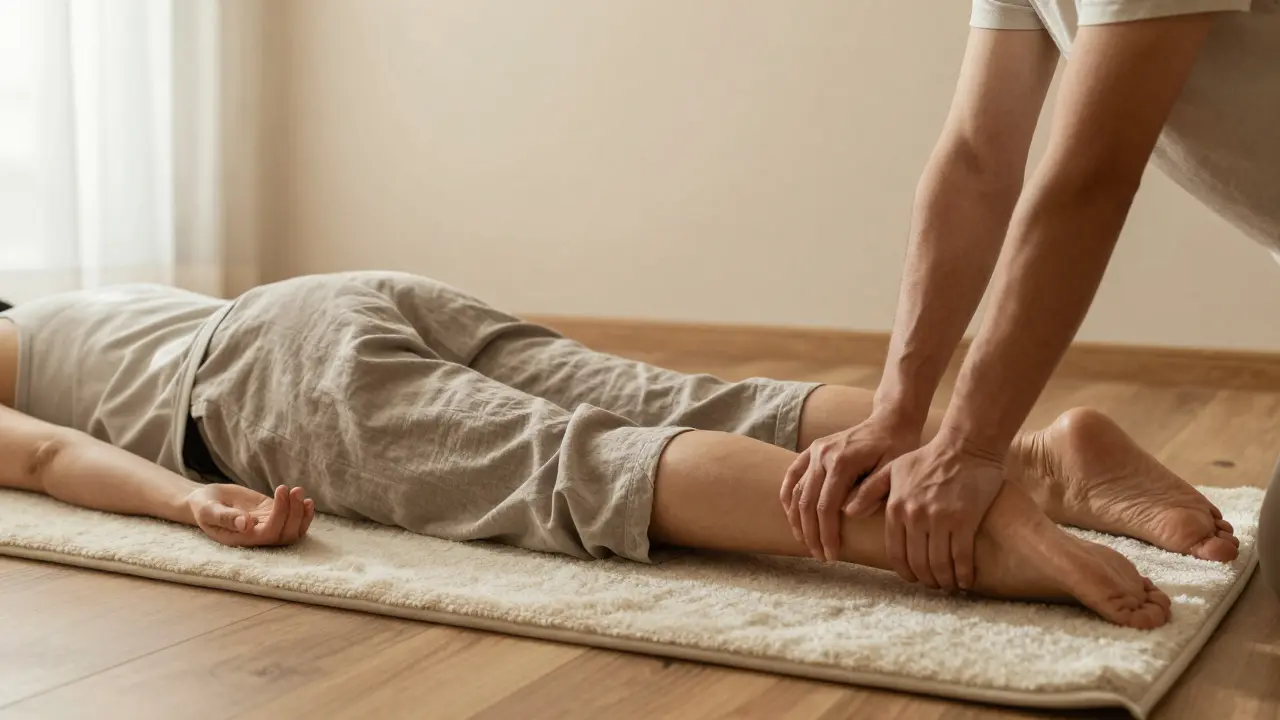
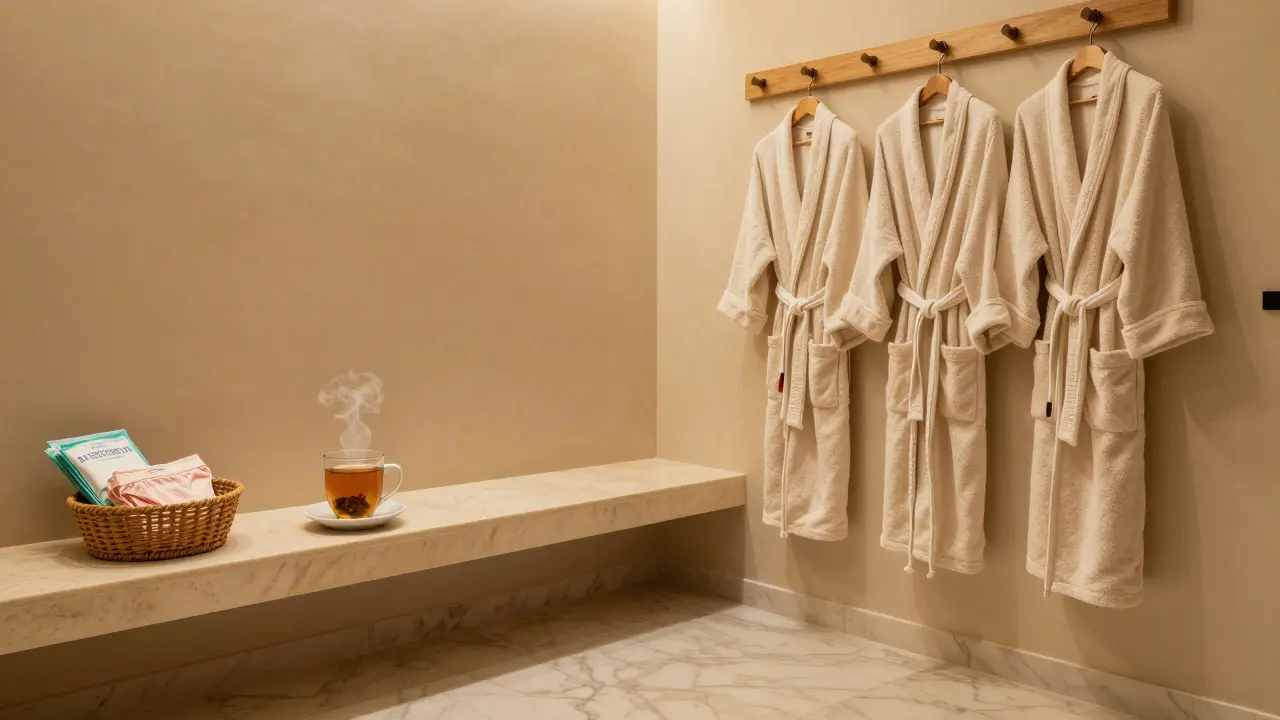
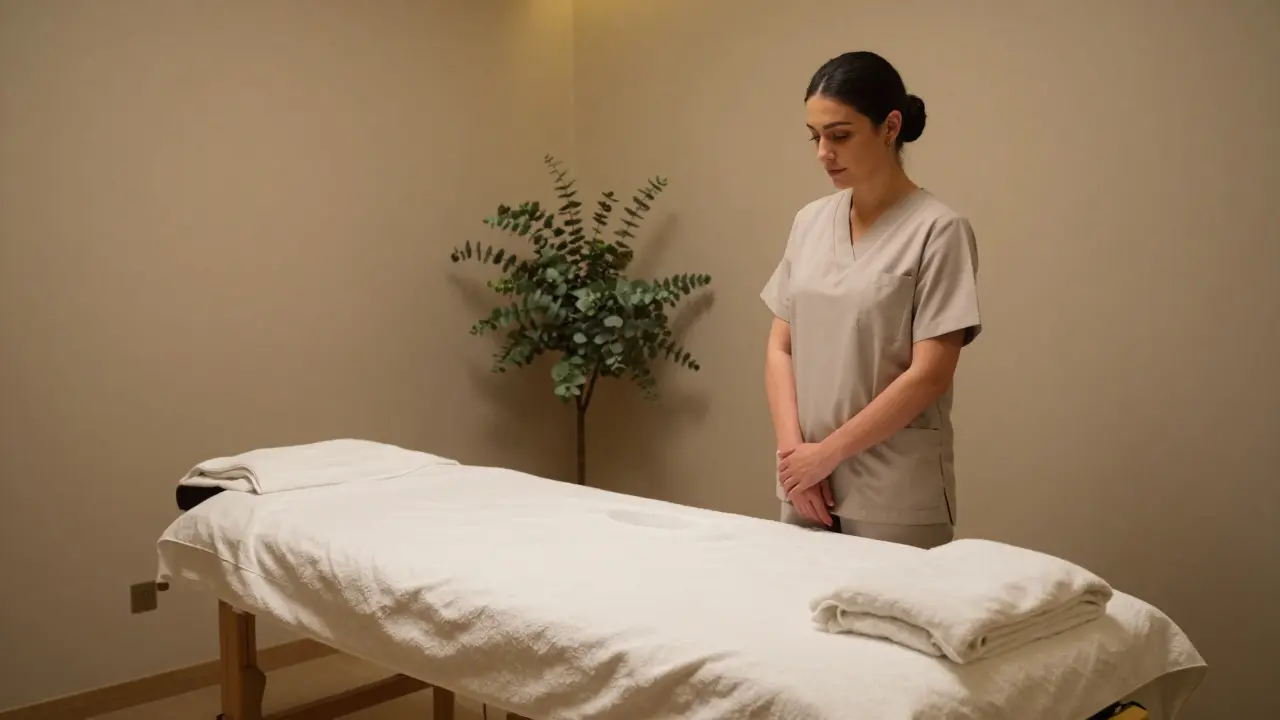
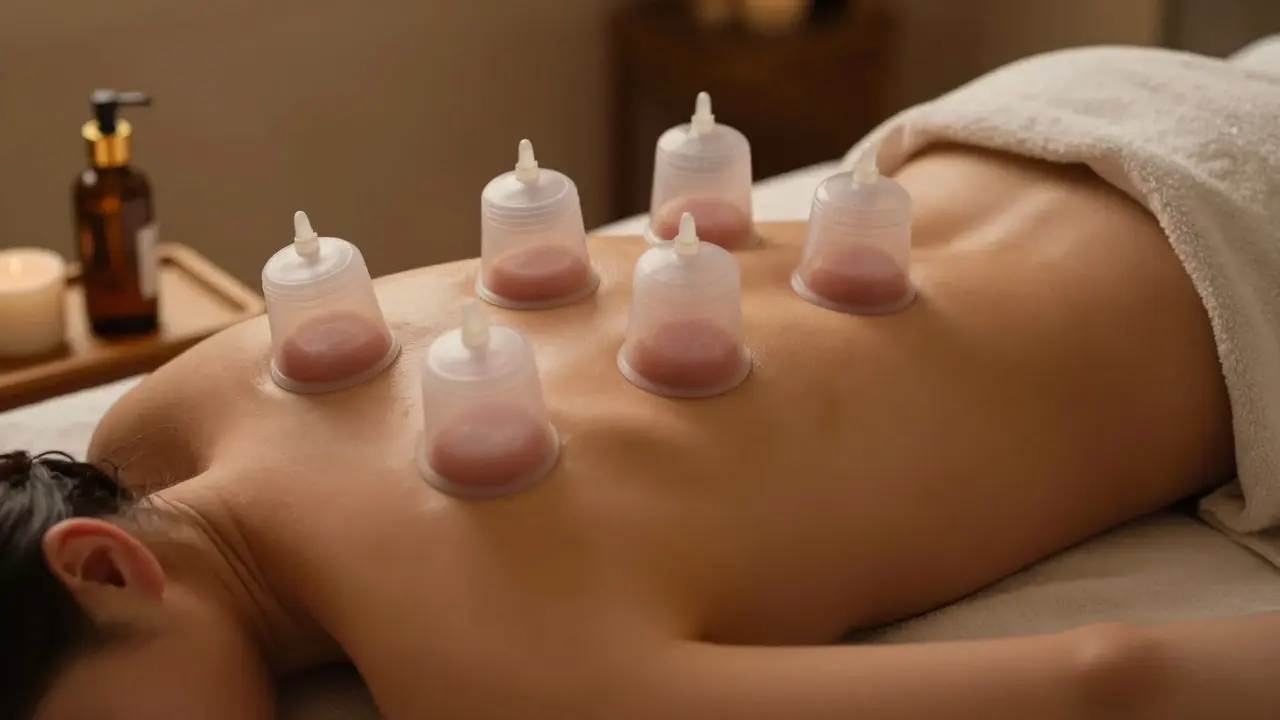
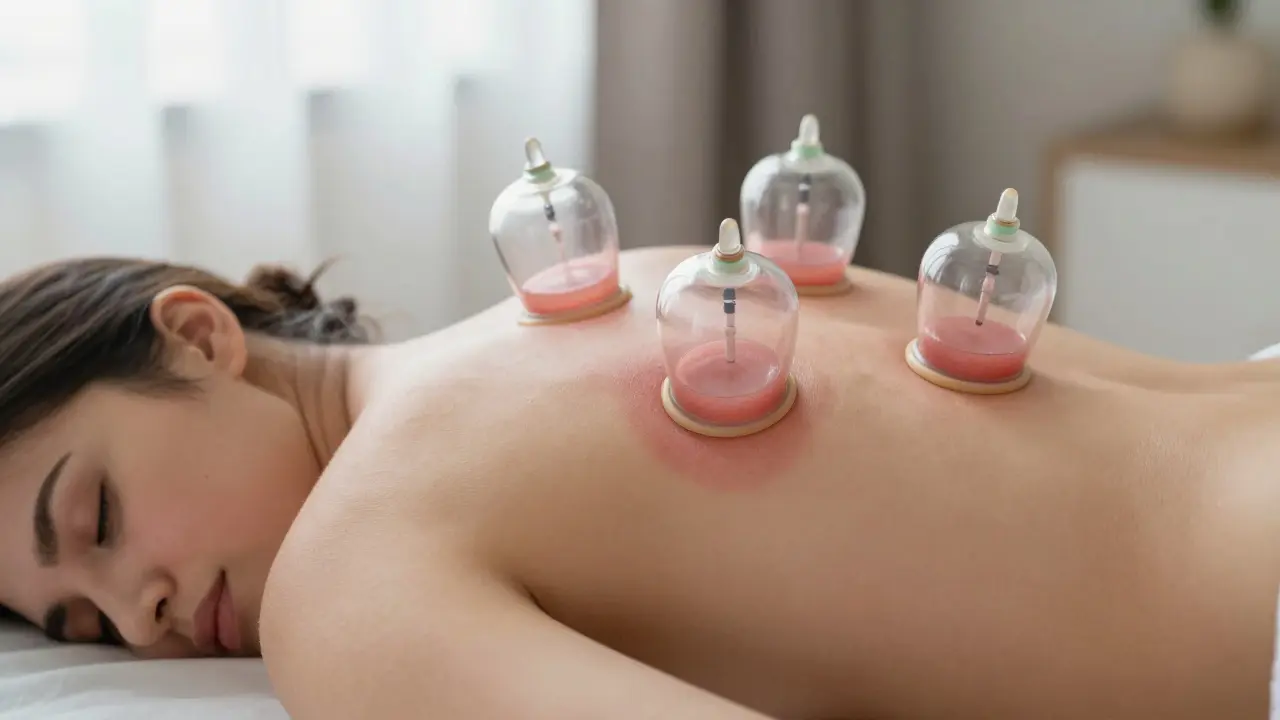
Zac C
November 21, 2025 AT 20:37Let’s be clear-body scrubs are a scam dressed up as self-care. That ‘glow’? It’s inflammation. You’re not renewing skin, you’re abrading it like you’re sanding a deck. Micro-tears aren’t a feature, they’re a fucking liability. And don’t get me started on ‘natural’ walnut shells-those jagged bastards are basically tiny glass shards for your epidermis. Stop lying to yourself.
Owolabi Joseph
November 22, 2025 AT 14:37Post is accurate but lacks clinical precision. The lipid barrier disruption from mechanical exfoliation triggers TLR-4 and IL-1β upregulation-this isn't just 'dryness,' it's innate immune activation. In hyper-arid environments like Dubai, transepidermal water loss spikes 400% post-scrub. You're not exfoliating-you're compromising stratum corneum integrity. Sugar scrubs? Still too abrasive. Enzymatic keratolysis via papain or bromelain is the only physiologically valid alternative.
Brian Barrington
November 23, 2025 AT 08:28Here’s the thing nobody wants to admit: we don’t scrub our skin because it needs it-we scrub because we’re terrified of being imperfect. We want that ‘freshly peeled’ look like we’re some kind of aesthetic commodity. But skin isn’t a product to be polished. It’s a living organ. The ritual of scrubbing? It’s a performance of control in a world that won’t let us control anything else. The real damage isn’t the micro-tears-it’s the belief that we need to be scrubbed clean to be worthy. That’s the real toxin.
And yeah, I know it sounds like I’m quoting a yoga retreat pamphlet. But ask yourself: why does your skin feel better after a moisturizer than after a scrub? Because you’re healing, not scraping.
Lilith Ireul
November 25, 2025 AT 02:11Ugh I just bought a coconut sugar scrub last week and now my legs look like a sunburnt alligator why did I listen to TikTok
why why why why
Daniel Christopher
November 25, 2025 AT 12:28People who use body scrubs are just lazy. If you can’t hydrate your skin properly, don’t blame the scrub-blame your inability to follow basic dermatological hygiene. Moisturize daily. Drink water. Stop trying to shortcut biology with glitter and fragrance. You’re not special. Your skin doesn’t need a party.
Cooper McKim
November 26, 2025 AT 19:10Ironically, the entire skincare industry thrives on manufactured insecurity. Scrubs are the perfect capitalist trap: you buy one, it irritates your skin, then you buy the ‘soothing’ cream, then the ‘repair’ serum, then the ‘barrier-repair’ oil, then the ‘gentle’ scrub that’s still abrasive, and on and on. The truth? Your skin doesn’t need 12 products. It needs silence. Stillness. And maybe a towel. That’s it. We’ve turned biology into a subscription model.
Also, ‘natural’ doesn’t mean safe. Poison ivy is natural. So is arsenic. Stop romanticizing ingredients. Read the SDS, not the Instagram caption.
Priya Parthasarathy
November 28, 2025 AT 04:37Thank you for this thoughtful, well-researched post-it’s rare to see skincare advice grounded in science rather than hype. I’ve struggled with eczema for years, and I used to scrub daily thinking it would help. It made everything worse. Switching to a ceramide cream and a soft konjac sponge changed my life. Skin doesn’t need to be scrubbed to be beautiful-it needs to be respected. To anyone reading: your skin is not your enemy. Be gentle. You’re worth it.
Satya Im
November 29, 2025 AT 07:05Indeed, the philosophical underpinnings of modern skincare culture are deeply problematic: we have conflated aesthetic perfection with moral virtue, and bodily care with self-worth. The body scrub, in this context, becomes a sacrament of performative discipline-a ritualistic act of penance for existing in a body that society deems insufficient. Yet, the epidermis, as a biological entity, is not a canvas to be polished, but a sentinel to be protected. To scrub is to wage war against nature’s equilibrium; to moisturize, to restore harmony. Let us, therefore, choose not the abrasive, but the nourishing; not the spectacle, but the silence. For true radiance arises not from removal, but from restoration.
Louie B-kid
November 30, 2025 AT 15:51Big thanks for this breakdown. I used to be a scrub addict-twice a week, no mercy. Then I started getting red patches and itchy legs. Switched to lactic acid toner and a washcloth. No more irritation. Skin feels softer, not raw. Also, the konjac sponge is a game-changer. No plastic, no guilt, no trauma. Seriously, try it. Your skin will thank you.